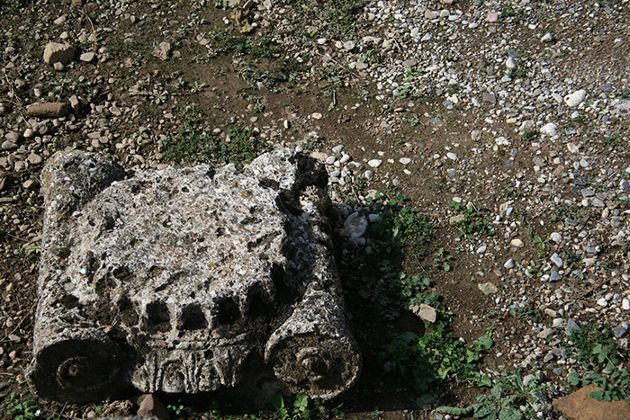-
 Podcast - How much is Greece getting out of the RRF?
Podcast - How much is Greece getting out of the RRF?
-
 Podcast - Between investment grade and rule of law: Greece's contrasting images
Podcast - Between investment grade and rule of law: Greece's contrasting images
-
 Where is Greek growth coming from?
Where is Greek growth coming from?
-
 Bravo, Bank of Greece
Bravo, Bank of Greece
-
 Podcast - A year on from Tempe train crash, trust fades as questions mount
Podcast - A year on from Tempe train crash, trust fades as questions mount
-
 Podcast - SYRIZA embraces the chaos
Podcast - SYRIZA embraces the chaos
Samaras seeks vote of confidence and moment of history

Pop quiz: When was the last time Greece held elections at the end of the government’s four-year term? It was in 1989, the year the Berlin Wall fell, F.W. de Klerk started dismantling apartheid in South Africa, Soviet troops left Afghanistan, Chinese students demonstrated and were shot in Tiananmen Square and dictator Nicolae Ceauşescu was executed in Romania. It is right up there with the world’s historic events.
Since then, there have been 10 general elections in Greece and only one (March 2004) has come close to being at the end of the government’s full term in office. Then, Greece went to the polls a month or so early because of preparations for the Olympic Games.
So, it will be no surprise if the coalition fails to see out its current term. There was mounting speculation over the past few days that the New Democracy-PASOK administration was counting its remaining days, rather than months, in office but Prime Minister Antonis Samaras sought to end these rumours by asking for a vote of confidence in Parliament next week.
Like early elections, votes of confidence are not a rare occurrence in Greek politics either. How could anyone forget the manic, and slightly surreal, days of November 2011 when George Papandreou asked for a vote of confidence to rubber stamp his departure? This time, Samaras is hoping for the opposite effect. By winning the ballot, the prime minister believes he can create a little breathing space for his beleaguered government.
The move forces New Democracy and PASOK MPs who voiced their frustrations with increasing gusto to put up or shut up, at least until Parliament has to elect a new president of the republic next February/March. Theoretically, it is a move that will give Samaras some room to manoeuvre in the ongoing negotiations with the troika, which is demanding further reforms. With a fresh mandate from his MPs, he can bring new legislation to Parliament with more chances of it passing.
More than anything else, though, it gives Samaras just over four months (until the process for electing a new president begins in mid-February) to rescue his premiership. The prime minister needs something tangible to present firstly to his MPs, and then to voters if early elections, which will likely result in a damaging defeat for New Democracy, are to be avoided.
He needs at least a couple, but possibly all four, of the following things to occur:
- The current troika review to be wrapped up relatively painlessly, without a need to take more measures that will rile coalition backbenchers and fuel the coalition’s opinion poll demise
- The European Central Bank stress tests to show in late October that Greek banks need little, if any, of the 11 billion euros or so left in the bank recapitalisation fund (HFSF) to improve their capital adequacy
- Samaras to go ahead with his plan to exit the Greek programme at the end of this year, armed with an extra few billion from the HFSF that could replace the International Monetary Fund instalments still due
- The eurozone to engage in meaningful debt relief talks with Greece that would at the very least generate the hope of lightening the fiscal burden over the years to come
Without this, it seems unlikely that the prime minister would be able to muster the necessary votes for any candidate he puts before the House. There would be a pervasive sense that the New Democracy-PASOK alliance had run its course, unable to free Greece of its shackles.
However, if Samaras secures some or all of the breaks mentioned above, it would help create a platform from which he could argue that a failure to back his presidential candidate would jeopardise Greece’s chance for a clear run, free of foreign oversight and at least some of its debt burden.
From where we stand now, though, it would take a dramatic shift in events for the Greek premier to find himself in such a position. It would certainly be one for the history books.
Why it should be a priority to get out of funding which costs, at the most, 2% and opt for market-based funding which costs, at least, 6% is a mystery to me. I recognize that the words 'program', 'Troika', 'memorandum' etc. are terrible words for a politician to use these days but there ought to be a way to change those words into something more forward-looking. And it ought to be possible to negotiate with the official lenders debt reflief and reprofiling which allows Greece to keep the primary surplus for domestic investment.